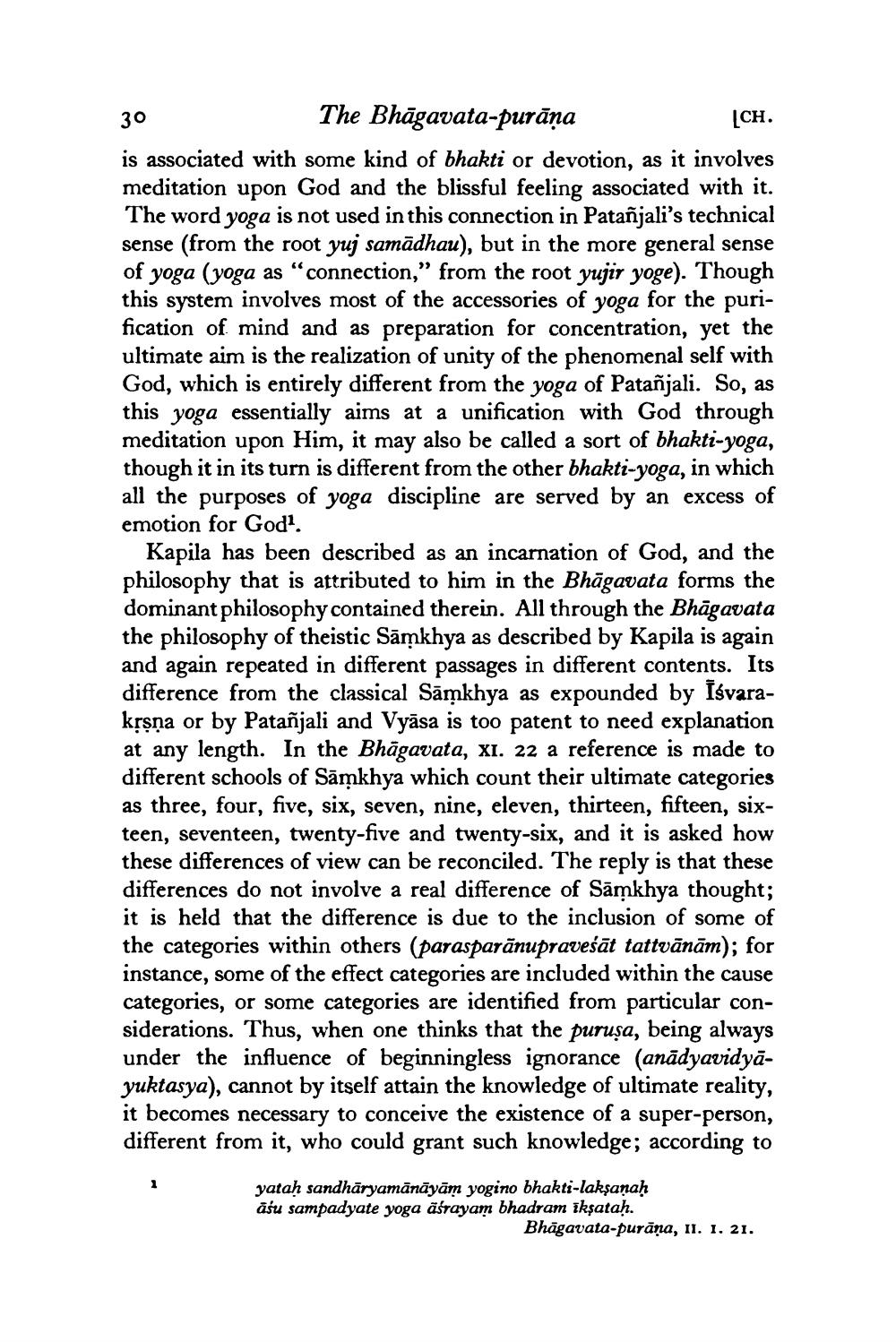________________
30
The Bhagavata-purāṇa
[CH.
is associated with some kind of bhakti or devotion, as it involves meditation upon God and the blissful feeling associated with it. The word yoga is not used in this connection in Patanjali's technical sense (from the root yuj samādhau), but in the more general sense of yoga (yoga as "connection," from the root yujir yoge). Though this system involves most of the accessories of yoga for the purification of mind and as preparation for concentration, yet the ultimate aim is the realization of unity of the phenomenal self with God, which is entirely different from the yoga of Patanjali. So, as this yoga essentially aims at a unification with God through meditation upon Him, it may also be called a sort of bhakti-yoga, though it in its turn is different from the other bhakti-yoga, in which all the purposes of yoga discipline are served by an excess of emotion for God1.
Kapila has been described as an incarnation of God, and the philosophy that is attributed to him in the Bhāgavata forms the dominant philosophy contained therein. All through the Bhāgavata the philosophy of theistic Samkhya as described by Kapila is again and again repeated in different passages in different contents. Its difference from the classical Samkhya as expounded by Ïśvarakṛṣṇa or by Patañjali and Vyāsa is too patent to need explanation at any length. In the Bhagavata, XI. 22 a reference is made to different schools of Samkhya which count their ultimate categories as three, four, five, six, seven, nine, eleven, thirteen, fifteen, sixteen, seventeen, twenty-five and twenty-six, and it is asked how these differences of view can be reconciled. The reply is that these differences do not involve a real difference of Samkhya thought; it is held that the difference is due to the inclusion of some of the categories within others (parasparānupraveśāt tattvānām); for instance, some of the effect categories are included within the cause categories, or some categories are identified from particular considerations. Thus, when one thinks that the purușa, being always under the influence of beginningless ignorance (anadyavidyayuktasya), cannot by itself attain the knowledge of ultimate reality, it becomes necessary to conceive the existence of a super-person, different from it, who could grant such knowledge; according to
1
yataḥ sandhāryamānāyām yogino bhakti-lakṣaṇaḥ asu sampadyate yoga äśrayam bhadram ikṣataḥ.
Bhagavata-purana, II. 1. 21.




